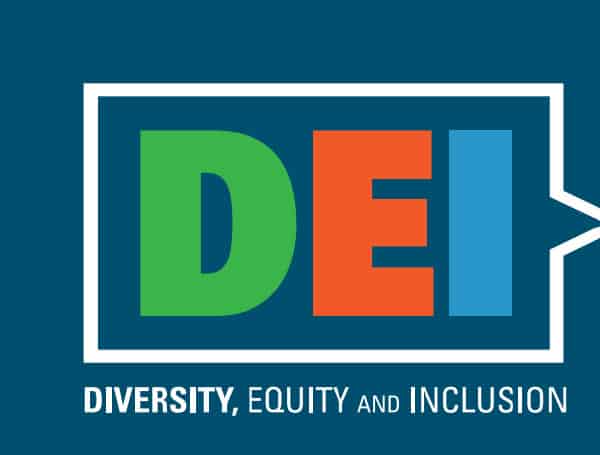DEI (File) By Brandon Poulter, DCNF. Legislators introduced several bills in January aiming to outlaw diversity, equity and inclusion (DEI) pr

Legislators introduced several bills in January aiming to outlaw diversity, equity and inclusion (DEI) programs in educational institutions in states across the U.S.
Colleges and universities often use diversity statements, which require professors to say how they will advance DEI in schools, and many schools require mandatory DEI trainings for faculty.
Several states have outlawed the use of DEI in public universities, including Texas and Florida, and now several more states have introduced bills to address DEI, including South Carolina, Indiana and Kentucky.
Read: Stage Set In Texas For One Of The Biggest State-Versus-Feds Immigration Fights In More Than A Decade
“Campus DEI bureaucracies threaten student and faculty speech rights. Those offices are used to advance a campus orthodoxy and stifle free speech and academic freedom. DEI statements, which are used to weed out dissenting views among students and faculty, function as de facto political litmus tests and are unconstitutional,” Tyler Coward, lead counsel of government affairs for the Foundation for Individual Rights and Expression (FIRE), a free speech legal organization, told the Daily Caller News Foundation.
Kentucky’s bill would ban public universities from requiring students and faculty to endorse “divisive concepts” and also from having to take part in mandatory trainings teaching those concepts. It almost aims to ban diversity statements that require students or faculty to endorse ideology or political viewpoints to be eligible for being hiring or graduating.
The bill also bans race-based scholarships and would give persons affected by violations of the law the right to sue the institution for damages of between $1,000 and $100,000 per violation.
Kentucky’s Democratic governor Andy Beshear could veto the law, but Republicans have enough power to override it with a supermajority in the state.
Read: As Lawmakers Move To Define Anti-Semitism, One Florida Democrat Shows Opposition To Israel
Another bill in South Carolina also takes aim at DEI programs and diversity statements.
House bill 4663 would outlaw “compelling, requiring, inducing, or soliciting any person to provide a diversity, equity, and inclusion statement” or giving preference to anyone who has provided “a diversity, equity, and inclusion statement.” The bill also would outlaw the creation of DEI offices at state institutions, including universities, and would require existing DEI offices to be shut down.
The bill says if a violation is found, the institution has 180 days for the violation to be rectified, and after that the state treasurer will withhold monetary distributions to that department or office.
DEI is “antithetical to the principles of American government, to the ideas that must undergird any functional society, and ultimately DEI undermines the fabric of our communities,” Republican South Carolina state Rep. Thomas Beach, the author of the bill, told the DCNF.
“I have seen both at the local level, in public schools, these ideas being spread to young children, but also at the university level at Clemson and USC. Both are wrong. Ultimately, I believe that schools that spread this ideology should receive no government funding,” Beach continued.
Republican Indiana state Sen. Tyler Johnson introduced a similar bill Jan. 9 in his state. The bill prohibits state educational institutions from penalizing or discriminating against students or employees of the institution that refuse to support “divisive concepts.”
Read: Florida Transgender Golfer Set To Be The First Biological Man To Play The LPGA
The divisive concepts include teaching that individuals should receive different treatment because of their race or sex, one race or sex is inferior or superior to others and that the United States or Indiana is inherently racist or sexist, among other things.
Another legislator in Idaho is also looking at outlawing DEI and is planning to present a bill soon.
“DEI offices are organized efforts to discriminate and should be ended. Title IX and the Civil Rights Act don’t require DEI offices,” Republican Idaho state Sen. Brian Lenney told the Daily Caller News Foundation.
“For example, Boise State’s Student Equity center, which claims to model diversity and advocate for equity, hosts several racially discriminatory graduation ceremonies, including ‘Black Excellence Stole Celebration’ for black students, LGBTQ only graduation ceremonies and the ‘LatinX Stole Celebration’ for Latinx students,” Lenney continued.
Several university faculty members have argued that DEI practices crush academic freedom on campuses. Others have said it is causing campuses to become inhospitable to free speech, and results in ideological conformity at schools.
One psychology professor at Rutgers University, Lee Jussim, said that states have the right to outlaw DEI since he believes it violates academic freedom and civil rights.
“States have the legitimate right to organize their State U’s around whatever principles they deem best, as long as they violate neither U.S. law, nor individual faculty academic freedom,” Jussim told the DCNF.
Read: Trump Camp Praises Florida Gov. DeSantis After Suspension Of Presidential Bid, Endorsement
“In general, because I also believe that, in the real world (as opposed to the ideals of some of its advocates), DEI functions to advance (what I believe to be) illegal discrimination (based mostly on U.S. Civil Rights Law protections) and also is corrosive to academic freedom, institutional neutrality, and merit-based systems, banning them is probably the lesser of two evils,” Jussim continued.
But Coward warned that legislatures may violate the First Amendment and impinge academic freedom by limiting DEI on campuses.
“FIRE has consistently told legislators that when dealing with the excesses of the campus DEI bureaucracy, the government cannot ban DEI-related concepts from being taught or discussed on campus,” Coward told the DCNF.
Android Users, Click To Download The Tampa Free Press App And Never Miss A Story. Follow Us On Facebook and Twitter. Sign up for our free newsletter.

